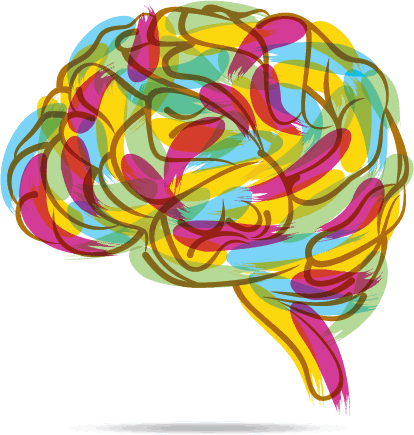
BY CAYLA RAMEY
PEER REVIEWED BY MARITA SCHAUCH, BSC, ND
According to the 2012 Canadian Survey on Disability (CSD), 13.7 per cent of adult Canadians aged 15 years and older reported having some type of disability, with 2.3 per cent of Canadian adults identifying themselves as having a memory disability.
The over-secretion of stress hormones can affect the part of the brain that encodes memory and retrieves information—the hippocampus. This vital area regulates the production of cortisol through negative feedback, and ultimately has many receptors that are sensitive to cortisol and other stress hormones. Stress hormones also deter energy from being received by the hippocampus by redirecting glucose to surrounding muscles (Kuhlmann, 2005).
Chronic stress has been found to affect everyone differently. However, higher event-based stress is associated with cognitive impairment.
Because of this, stress is also known to impact concentration: when a negative stimulus is present, it is difficult to divert one’s attention (Daleiden, 1998).
Eating foods that are rich in antioxidants, like avocados and salmon, can help influence cognitive ability, but there are also several vitamins and minerals that can help the brain combat the effects of stress.
B VITAMIN COMPLEX – USE AS DIRECTED
B vitamins are imperative in the promotion of healthy mental function. Folic acid, B6 and B12 vitamins are essential for creating methionine in the central nervous system (Stough, 2014). Researchers have discovered that chronic stress depletes vitamin B6 (Ford, 2013), which is necessary in the process of making serotonin and norepinephrine—two chemicals that transmit signals in the brain. Vitamin B12 and B1 deficiencies are both linked to memory loss. B12 deficiency is also associated with fatigue, which can ultimately lead to the inability to concentrate. B vitamins can affect other medications, including antibiotics, heart or blood pressure medications, and tretinoin or isotretinoin. Be sure to discuss your need for B vitamins with a health-care practitioner and follow the label instructions.
EVIDENCE
Over the last few decades, a number of studies emerged to prove the relevance of B vitamins to our health. Now, B vitamins are well known to affect cognitive function for the better (Hutto, 1997). In one study, short-term supplementation in 211 women, ranging in age, showed improvement in memory, cognitive processing resources, and executive function (Bryan (2002). A randomized clinical trial examined the effects of B-vitamin intervention on workplace stress and found a significant reduction in personal strain and cognitive function (Stough, 2014).
L-THEANINE – 100-200MG DAILY
L-theanine is an amino acid found in green tea that protects brain cells against excitotoxicity, calming the nerve networks in the brain. Researchers believe that L-theanine and other tea-related compounds may help prevent memory loss and stroke-induced damage to brain tissue. According to studies by Vuong, Wakabayashi and Nathan, L-theanine has traditionally been used to enhance relaxation and improve concentration and learning ability. The recommended dosage, if taking a supplement, is 100-200mg daily. It can be used alongside caffeine, but it can have negative affects when taken with medications. Discuss possible effects with your health-care provider if you are taking other medications.
EVIDENCE
Evidence for the benefits of L-Theanine on memory and concentration is minimal, but the studies that have been conducted have shown a significant improvement. It has also been found that if healthy levels of theanine are maintained in the body at the time of a stroke, the damaged area will be reduced. A study that included 14,000 people showed that drinking green tea three times a day also reduces the risk of stroke by 60 per cent (Gupta, 2011).
Many studies suggest that L-Theanine is an anxiolytic, which means it can help with anxiety as well as mental and physical stress. This is due to L-Theanine’s ability to block the binding of L-glutamic acid to glutamate receptors in the brain (Kimura, 2007). It also acts as a neurotransmitter to decrease blood pressure and relax the subject (Juneja, 1999).
According to a double-blind placebo-controlled study by Sang-Ki Park in 2011, L-Theanine enhances memory and attentiveness in patients suffering from mild cognitive inability. This 16-week-long study also showed that L-Theanine is a plausible treatment for improving cognition and memory.
Based on these studies, it can be assumed that L-Theanine only has a positive affect on cognitive functioning.
KAVA KAVA – 300MG DAILY
Kava kava is a shrub that grows on the islands of the Pacific Ocean. The roots of this plant are often used medicinally and ceremonially. Kava kava has been used for hundreds of years in the Pacific Islands, traditionally as a ceremonial drink. Today, kava kava comes in many forms, the most popular in North America being tinctures, extracts, capsules or tablets. While many studies indicate the usefulness of kava kava as a sleep aid, concerns have been noted about its toxicity to the liver, though nothing has been confirmed. Because of this, it is not actually recommended as an ongoing insomnia treatment, but has instead been found to improve cognitive function and anxiety levels. It is recommended to only take kava kava whilst under the supervision of a health-care practitioner, and not to exceed taking it for more than four weeks at a time. While the recommended dosage for this supplement may vary, 250-300mg is standard.
EVIDENCE
A number if clinical trials have found that kava kava is effective in improving cognitive function. One acute study discovered that kava kava significantly improved visual attention span and working memory processes (laPorte, 2011). Anxiety can play a large part in one’s ability to divert their attention from one stimulus to another, as stated previously. Since kava kava has proven to treat anxiety, it can translate into cognitive improvement. A double-blind, randomized, placebo-controlled trial of oral kava kava extract showed that the extract proved favourable in seven reviewed trials in treating anxiety and cognitive function (Pittler, 2000). Although these studies can be considered controversial, with proper direction, there is no reason to believe that kava kava cannot improve stress levels and therefore cognitive abilities. VM










